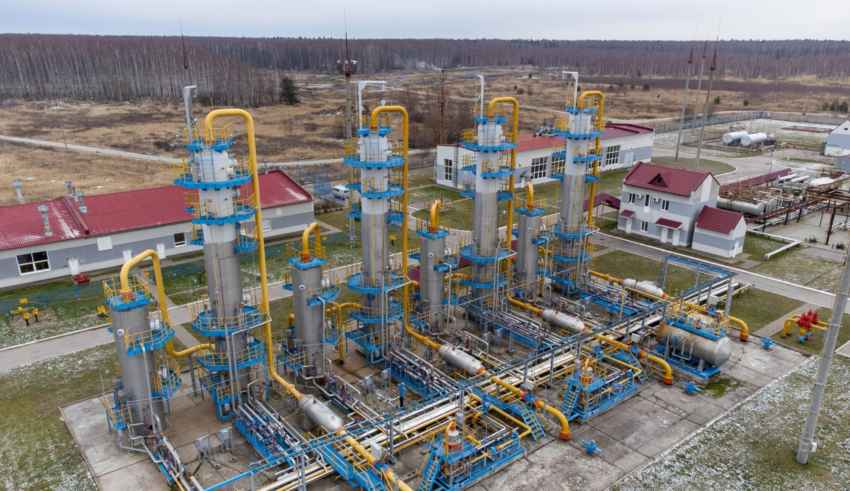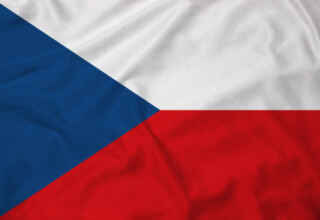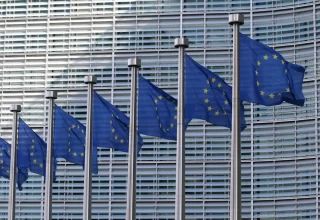
Considering that Russia is the world’s second-largest producer of natural gas, one of the world’s largest oil-producing nations, and that Ukraine is a crucial transition point of the pipelines that link Russia and Europe, with the military invasion of the Ukrainian territory by the Russian troops, there will be a drastic aftermath on numerous sectors, namely the energy one.
Although Ukraine has not imported gas from Russia since 2015, and even has an underground storage of the good, its domestic gas supply is integrated in the transit gas pipelines that go from Russia to Europe – so if these were to stop, the pressure in the system would decrease and that would leave Ukraine unable to supply the necessary gas for internal consumption. Obviously, Europe would also face gas shortages. Additionally, the rest of the energy sector of Ukraine will be affected, given that most of its electricity production relies on gas. Nuclear powers and thermal plants also contribute to energy production, nevertheless, they also rely on gas. Coal is also used to power electricity; however, Ukraine’s coal reserves are under control of pro-Russian separatists, which leaves the country with an insufficient amount of it. Furthermore, Ukraine imports electricity from Belarus, as well as gasoline, transactions that see themselves halted given that Belarus operates accordingly to the Russian government (Reuters, 2022 “Factbox: Ukraine’s energy options limited in event of Russian gas disruption”).
When the invasion was announced the European gas prices raised, while international benchmark Brent crude futures surpassed $100 a barrel for the first time since 2014. There is a general concern regarding the risk of a full supply disruption to the EU — which receives roughly 40% of its gas via Russian pipelines. This could have consequences on multiple levels, ranging from public health to economic setbacks, especially considering the pandemic recovery. Europe might have a short-term viable scenario to hold itself, however, prospects in the long run seem rather arduous. If Europe reduces gas burn, cranks up mothballed nuclear and coal plants, tries to maximize indigenous gas production and pipeline imports, as well as persuades Asian buyers to use coal and free up liquefied natural gas (LNG) – these could be temporary solutions, that could maybe last through summer. Nonetheless, if Russia cuts off its gas supply, Europe’s chances of coping on a long-term scope will be very challenging, given that gas inventories wouldn’t build up sufficiently during summer, and consequently the storage for the next winter would be way too low. Thereupon, prices would increase drastically, industries would need to cease production, inflation would increase, and the European energy crisis could affect the development of the global economic sphere. Not to forget the fact that Russia is also a massive producer and exporter to Europe of fossil fuels and crude, which would see its prices heighten to an unaffordable level too (CNBC, 2022 “Gas is key in the Russia-Ukraine conflict — and supply could be disrupted around the world”).
The International Energy Agency (IEA) acted upon the implications that this conflict could pose for the international energy security, by releasing 60 million barrels of oil from the member countries emergency reserves, in order to avoid (or postpone) a shortfall of supply (IEA, 2022a “Russia’s War on Ukraine”). Hence, the IEA has also suggested measures to start reducing Europe’s dependency on Russian gas, hoping this will lead not only to Russia’s economic isolation, but also to a greener economic and energy transition. Some of those are: to stop any new gas supply contract with Russia, given that most of them are expiring within this year or decade; to replace Russian supplies with gas from alternative sources, like LNG or biogas; to introduce minimum gas storage obligations to enhance market resilience, in order to ensure the optimal use of all available storage capacity in the EU; to accelerate the deployment of new wind and solar projects, which will bring down the gas use; to maximise the generation from existing dispatchable low-emissions sources, like bioenergy and nuclear, given their low emissions and their great energy producing capacity; to enact short-term measures in order to shelter vulnerable electricity consumers from high prices; to speed up the replacement of gas boilers with heat pumps, which offer a very efficient and cost-effective way to heat homes, replacing boilers that use gas or other fossil fuels; to accelerate energy efficiency improvements in buildings and industry; to encourage a temporary thermostat adjustment by consumers; and to step up efforts to diversify and decarbonise sources of power system flexibility (IEA, 2022b “A 10-Point Plan to Reduce the European Union’s Reliance on Russian Natural Gas”).
In sum, it seems clear the negative outcomes that will arise from the current military conflict that’s spreading in Ukraine, towards the energy sector. They will not only directly affect Ukraine, Russia, and Europe, but also indirectly disturb the rest of the International Community through a global economic backlash. Reducing the reliance on Russian gas is a first step to be done, although it won’t be neither simple nor fast. Due to this fact, a cooperative strategy elaborated across multiple sectors is fundamental, along with a strong international dialogue on energy markets and security, including clear communication between governments, industry, and consumers. Europe’s policy choices are inherently linked to the global market, which means that these energy issues will inevitably reach every corner of the world – and if this doesn’t make it clear that all countries should be concerned and help, I don’t know what will.
References
CNBC (2022 ) “Gas is key in the Russia-Ukraine conflict — and supply could be disrupted around the world”) Accessed on: 04/03/2022 https://www.cnbc.com/2022/02/24/russia-ukraine-crisis-could-see-gas-supply-ramifications-for-the-world.html
IEA (2022a) “Russia’s War on Ukraine”. Accessed on: 04/03/2022 https://www.iea.org/topics/russia-s-war-on-ukraine
IEA (2022b) “A 10-Point Plan to Reduce the European Union’s Reliance on Russian Natural Gas”. Accessed on: 04/03/2022 https://www.iea.org/reports/a-10-point-plan-to-reduce-the-european-unions-reliance-on-russian-natural-gas
Reuters (2022) “Factbox: Ukraine’s energy options limited in event of Russian gas disruption”. Accessed on: 04/03/2022 https://www.reuters.com/business/energy/ukraines-energy-options-limited-event-russian-gas-disruption-2022-02-24/
By The European Institute for International Law and International Relations.













